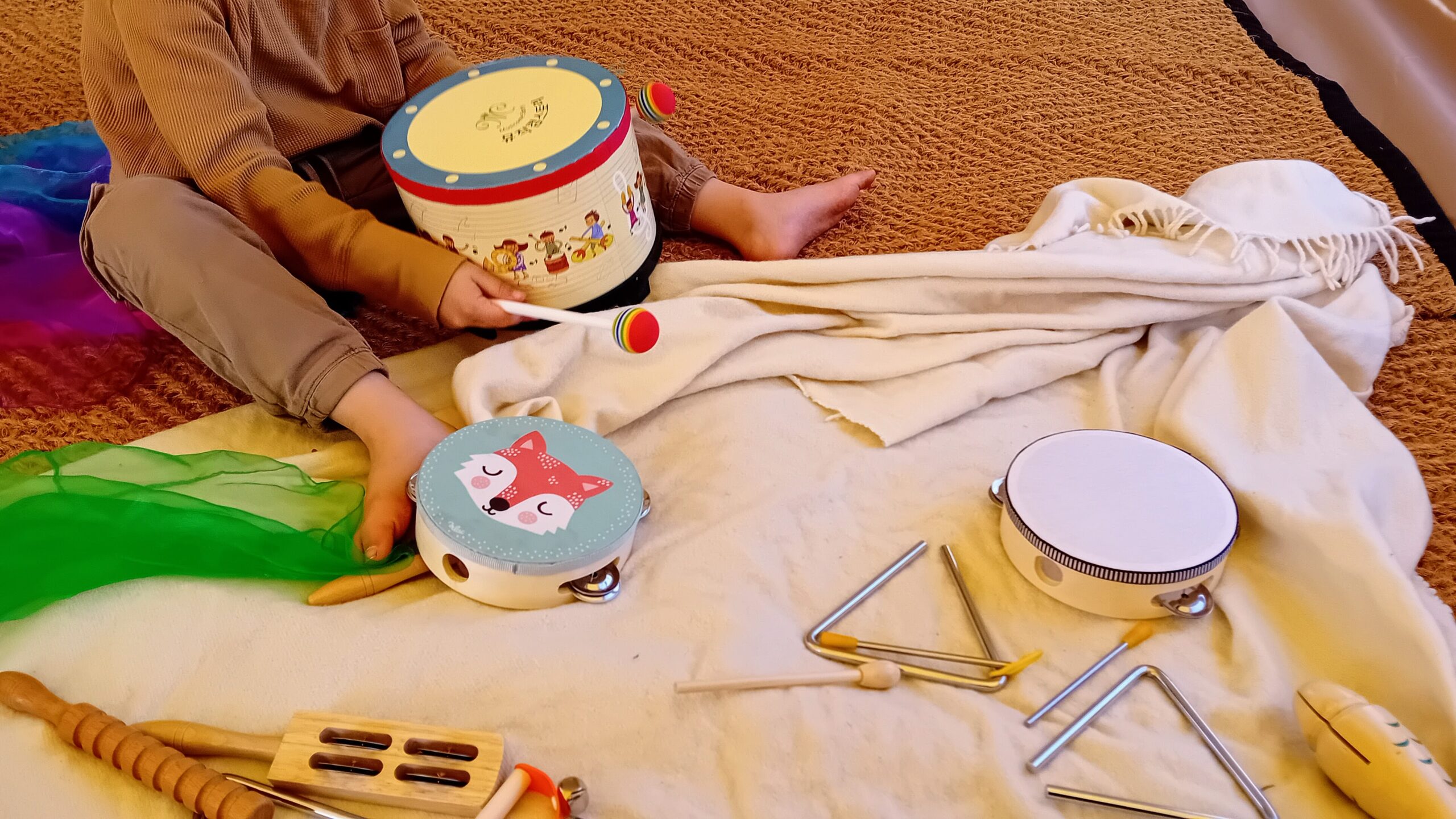The Powerful Impact of Music Education on Child Development
Parents are always looking for ways to give their children the best childhood. While many focus on traditional academic subjects, there’s a powerful tool that often goes unnoticed: music education. At Music Together Silver Coast, we’ve seen firsthand how music can transform a child’s development. Let’s dive into some of the incredible benefits of introducing your child to music early on. And for a bit of fun, we’ll sprinkle in some musical puns to make sure you don’t miss a beat!

1. Cognitive Development
Music is like a full-brain workout. Learning to read music, play an instrument, or simply follow a rhythm stimulates various areas of the brain simultaneously. This enhanced brain activity can lead to:
- Improved memory and attention span
- Enhanced problem-solving skills
- Better language development
Our classes are super informal so your children learn while playing and having fun!
2. Social Skills
Music is inherently social. Whether singing in a group or playing instruments together, children learn valuable social skills such as:
- Teamwork and cooperation
- Turn-taking and patience
- Empathy and emotional intelligence
They’ll learn to work in harmony with others and strike the right chord in social interactions.
3. Physical Development
Music and movement go hand in hand, especially in early childhood education. Through music, children can develop:
- Fine motor skills (through instrument play)
- Gross motor skills and coordination (through dance and rhythmic movements)
- Body awareness and control
Your child will be dancing to a new tune and fine-tuning their motor skills.
4. Emotional Expression
Music provides a unique outlet for emotional expression. It can help children:
- Identify and process complex emotions
- Boost self-esteem and confidence
- Reduce stress and anxiety
When words fail, music speaks – helping children to face the music and express their feelings.
5. Creativity and Self-Expression
Music education nurtures creativity from an early age. It encourages children to:
- Think outside the box
- Express themselves in new and unique ways
- Develop their own musical preferences and tastes
They’ll have a chance to compose themselves creatively and let their imagination crescendo.
6. Cultural Awareness
Through music, children can explore different cultures and traditions, fostering:
- Respect for diversity
- Global awareness
- Appreciation for different forms of expression
Music helps children to scale new cultural heights and broaden their horizons.
7. Academic Performance
Numerous studies have shown a correlation between music education and improved academic performance, particularly in areas such as:
- Mathematics
- Reading comprehension
- Overall academic achievement
They’ll be hitting the high notes in school, too!
Join us!
At Music Together Silver Coast, we believe in the power of music to shape young minds and hearts. Our programs are designed to harness these benefits in a fun, engaging environment where families can learn and grow together.
Ready to give your child the gift of music?
Join us for our upcoming Autumn courses – the Fiddle Collection for ages 0-4 and the Hippo Collection for ages 5-8.
Contact us today to learn more or register for a class!


References
[1] Miendlarzewska, E. A., & Trost, W. J. (2014). How musical training affects cognitive development: rhythm, reward and other modulating variables. Frontiers in Neuroscience, 7, 279. https://doi.org/10.3389/fnins.2013.00279
[2] Sala, G., & Gobet, F. (2020). Cognitive and academic benefits of music training with children: A multilevel meta-analysis. Memory & Cognition, 48, 1429-1441. https://doi.org/10.3758/s13421-020-01060-2
[3] Kraus, N., & Chandrasekaran, B. (2010). Music training for the development of auditory skills. Nature Reviews Neuroscience, 11(8), 599-605. https://doi.org/10.1038/nrn2882
[4] Rabinowitch, T. C., & Meltzoff, A. N. (2017). Synchronized movement experience enhances peer cooperation in preschool children. Journal of Experimental Child Psychology, 160, 21-32. https://doi.org/10.1016/j.jecp.2017.03.001
[5] Hallam, S. (2010). The power of music: Its impact on the intellectual, social and personal development of children and young people. International Journal of Music Education, 28(3), 269-289. https://doi.org/10.1177/0255761410370658
[6] Trainor, L. J., & Cirelli, L. (2015). Rhythm and interpersonal synchrony in early social development. Annals of the New York Academy of Sciences, 1337(1), 45-52. https://doi.org/10.1111/nyas.12649
[7] Saarikallio, S., Baltazar, M., & Västfjäll, D. (2017). Adolescents’ musical relaxation: Understanding related affective processing. Nordic Journal of Music Therapy, 26(4), 376-389. https://doi.org/10.1080/08098131.2016.1276097
[8] Schellenberg, E. G., Corrigall, K. A., Dys, S. P., & Malti, T. (2015). Group music training and children’s prosocial skills. PLoS One, 10(10), e0141449. https://doi.org/10.1371/journal.pone.0141449
[9] Elvers, P., Fischinger, T., & Steffens, J. (2018). Music listening as self-enhancement: Effects of empowering music on momentary explicit and implicit self-esteem. Psychology of Music, 46(3), 307-325. https://doi.org/10.1177/0305735617707354
[10] Barrett, M. S., Flynn, L. M., & Welch, G. F. (2018). Music value and participation: An Australian case study of music provision and support in Early Childhood Education. Research Studies in Music Education, 40(2), 226-243. https://doi.org/10.1177/1321103X18773098
[11] Ilari, B., Chen-Hafteck, L., & Crawford, L. (2013). Singing and cultural understanding: A music education perspective. International Journal of Music Education, 31(2), 202-216. https://doi.org/10.1177/0255761413487281
[12] Holochwost, S. J., Propper, C. B., Wolf, D. P., Willoughby, M. T., Fisher, K. R., Kolacz, J., … & Jaffee, S. R. (2017). Music education, academic achievement, and executive functions. Psychology of Aesthetics, Creativity, and the Arts, 11(2), 147-166. https://doi.org/10.1037/aca0000112
[13] Gordon, R. L., Fehd, H. M., & McCandliss, B. D. (2015). Does music training enhance literacy skills? A meta-analysis. Frontiers in Psychology, 6, 1777. https://doi.org/10.3389/fpsyg.2015.01777
[14] Guhn, M., Emerson, S. D., & Gouzouasis, P. (2020). A population-level analysis of associations between school music participation and academic achievement. Journal of Educational Psychology, 112(2), 308–328. https://doi.org/10.1037/edu0000376
#MusicTogetherSilverCoast #MusicTogetherSilverCoast #FamilyFun #KidsActivities #MusicForKids #SalirDoPorto #SãoMartinhoDoPorto #FamilyBonding #IndoorActivities #MusicTogether #MusicEducation #FamilyTime #ChildDevelopment #ExpatLife
